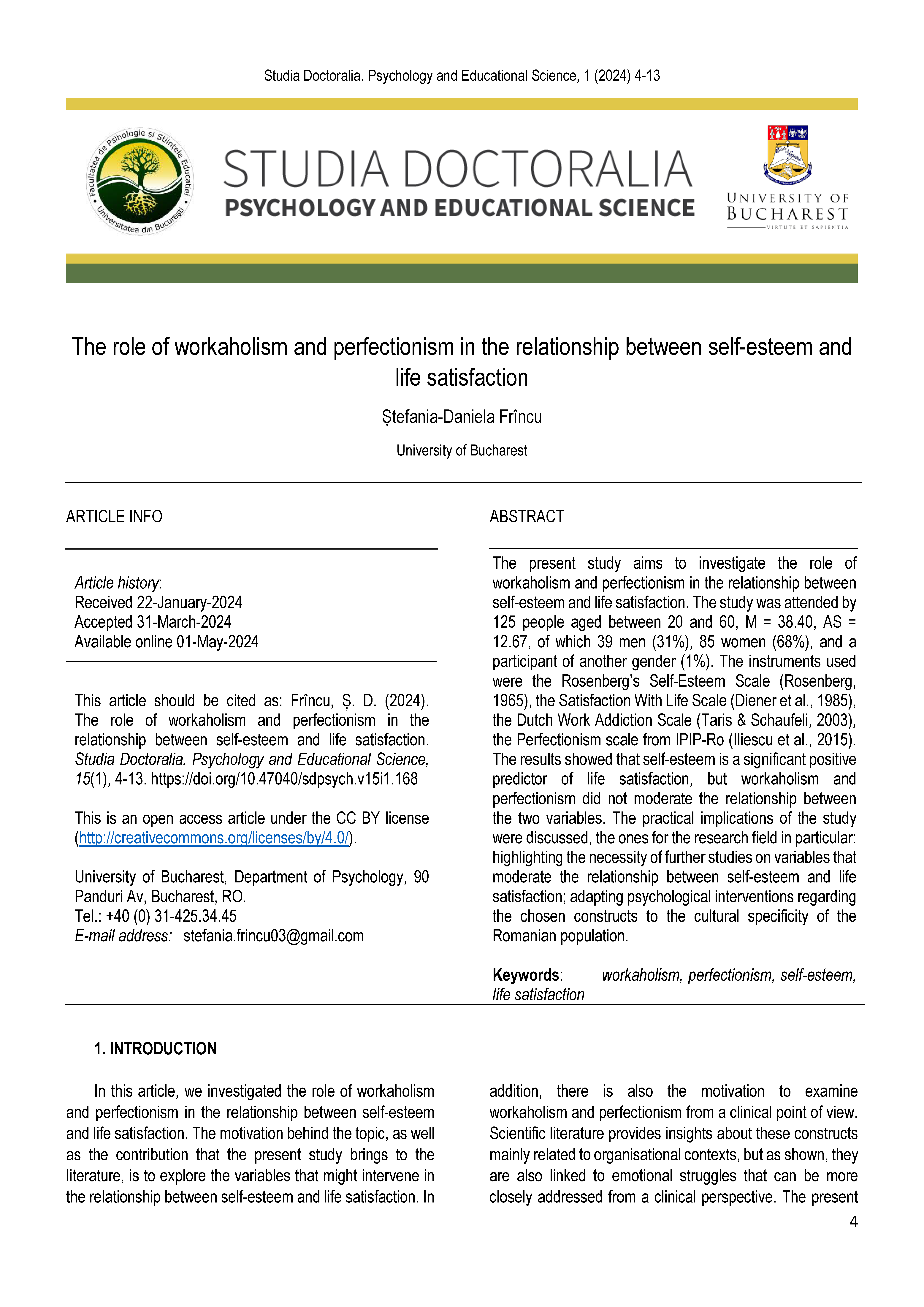The role of workaholism and perfectionism in the relationship between self-esteem and life satisfaction
DOI:
https://doi.org/10.47040/Keywords:
workaholism, perfectionism, self-esteem, life satisfactionAbstract
The present study aims to investigate the role of workaholism and perfectionism in the relationship between self-esteem and life satisfaction. The study was attended by 125 people aged between 20 and 60, M = 38.40, AS = 12.67, of which 39 men (31%), 85 women (68%), and a participant of another gender (1%). The instruments used were the Rosenberg’s Self-Esteem Scale (Rosenberg, 1965), the Satisfaction With Life Scale (Diener et al., 1985), the Dutch Work Addiction Scale (Taris & Schaufeli, 2003), the Perfectionism scale from IPIP-Ro (Iliescu et al., 2015).
The results showed that self-esteem is a significant positive predictor of life satisfaction, but workaholism and perfectionism did not moderate the relationship between the two variables. The practical implications of the study were discussed, the ones for the research field in particular: highlighting the necessity of further studies on variables that moderate the relationship between self-esteem and life satisfaction; adapting psychological interventions regarding the chosen constructs to the cultural specificity of the Romanian population.





